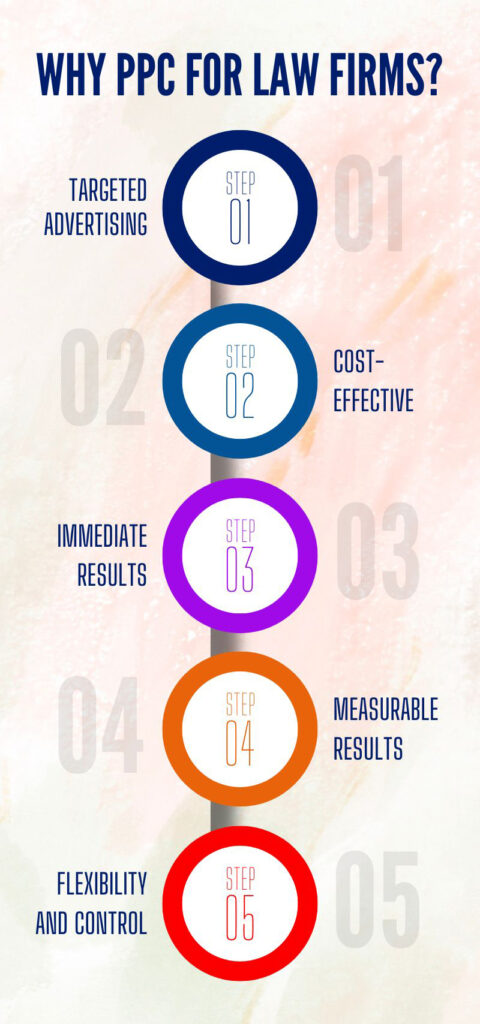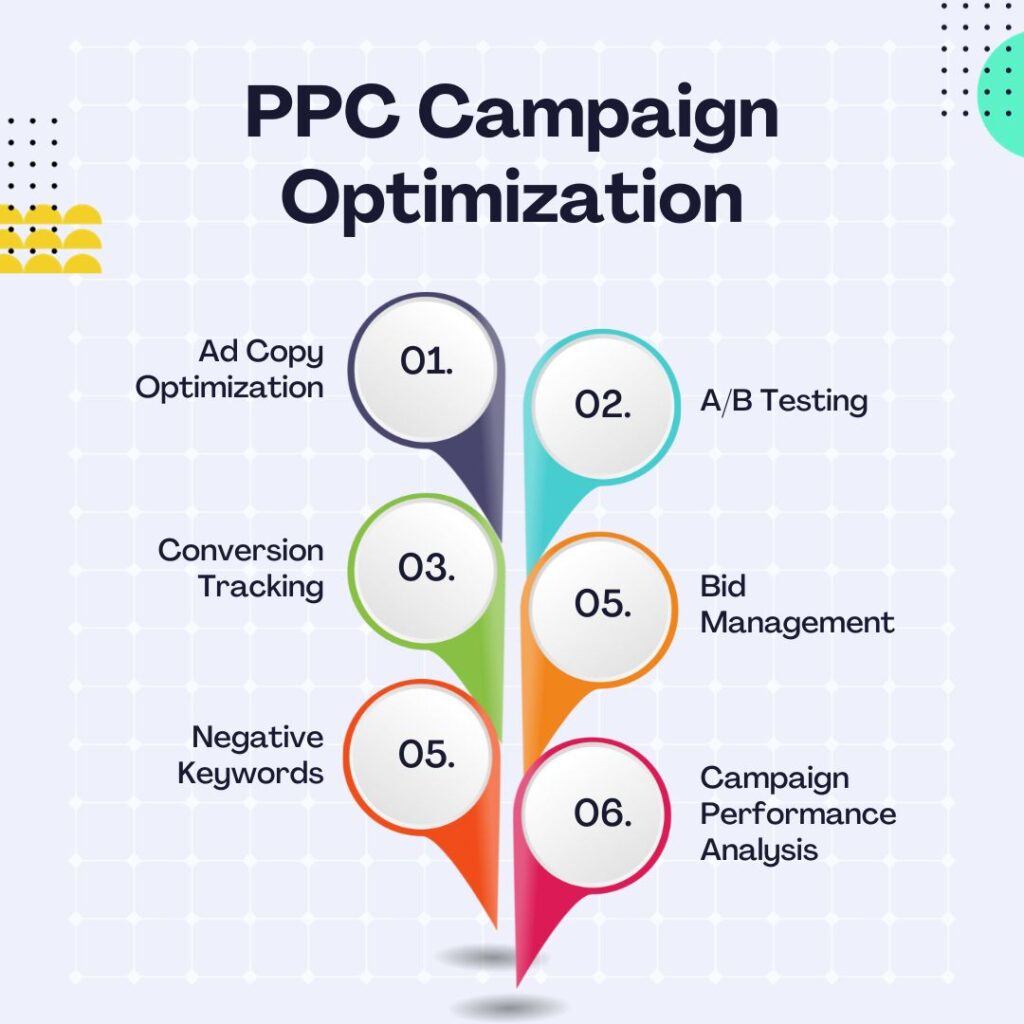Law Firm PPC
In today’s increasingly digital landscape, visibility in the virtual marketplace is no longer a luxury—it’s a necessity. For law firms, where the stakes of each potential client can be astronomical, ensuring your practice stands out in a saturated market is crucial. Enter Pay-Per-Click (PPC) advertising, a promising pathway to achieving this visibility.
When meticulously managed, PPC campaigns can bring an impressive return on investment (ROI), driving high-quality leads straight to your doorstep. However, the intricacies of PPC for law firms are unique and demand specialized strategies to harness its potential.
Why PPC for Law Firms?
Pay-Per-Click (PPC) advertising offers law firms an unprecedented opportunity to directly reach their target audience at the very moment they’re seeking legal advice or representation. But what makes PPC particularly vital for law firms? And how can it transcend mere visibility to forge meaningful client connections?
Our team has experts with almost two decades of experience assisting law firms with digital marketing and transformation. At SunRize Marketing, we have worked with legal professionals from virtually all legal practice areas and accumulated a wealth of experience developing and implementing digital marketing strategies targeted to all legal niches.
1. Targeted Advertising
2. Cost-Effective
3. Immediate Results

4. Measurable Results
5. Flexibility and Control
Crafting the Perfect Ad
Creating the quintessential Google Ad for law firms demands a meticulous concoction of several elements: precision in messaging, clarity in value proposition, and a compelling call to action, all sprinkled with a dose of creativity and empathy. It’s about forging a seamless pathway from a potential client’s query to your firm’s services, all while fostering trust and establishing authority. Our team has experts with almost two decades of experience assisting law firms with digital marketing and transformation. At SunRize Marketing, we have worked with legal professionals from virtually all legal practice areas and accumulated a wealth of experience developing and implementing digital marketing strategies targeted to all legal niches.
1. Keyword Research and Selection
Importance of Relevant Keywords
Tools for Keyword Research
Long-Tail vs. Short-Tail Keywords
2. Ad Copy
Ad copy plays a crucial role in maximizing ROI. Below are a few suggestions for crafting persuasive ad content for law firm PPC campaigns:
Use Relevant Keywords
Highlight Unique Selling Points
Include a Compelling Call-To-Action (CTA)
Utilize Ad Extensions
Test Different Ad Variations
3. Landing Pages
- Relevance and Consistency
- Clear and Compelling Headline
- Strong Call to Action (CTA)
- Simplicity is Key
- Mobile Optimization
- Use High-Quality Images and Visuals
- Testimonials and Trust Signals
- Limit Distractions
- Fast Load Times
- Form Optimization
- Engaging Content
- A/B Testing
- Transparent Privacy Policies
- Retargeting Pixels
- Analytics and Tracking
Local Optimization: Go Hyperlocal
1. Local Keyword Research
2. Geotargeting
3. Location Extensions
4. Local Landing Pages
Continuous Monitoring and Optimization

1. Ad Copy Optimization
2. A/B Testing
3. Conversion Tracking
4. Bid Management
5. Negative Keywords
6. Campaign Performance Analysis
The Role of Quality Score
Google’s Quality Score assesses the relevance and quality of your PPC advertisements and keywords. A higher quality score can result in improved ad positions while reducing costs. Improving your quality score involves:
- Enhancing the relevance of your ad text
- Ensuring the landing page’s relevance and user-friendliness
- Improving the click-through rate (CTR) of the ad

Common Pitfalls and How to Avoid Them
1. Broad Keyword Targeting
2. Ignoring Negative Keywords
3. Neglecting Mobile Users
Measuring ROI
1. Conversion Tracking
2. Cost-Per-Conversion (CPC)
3. Conversion Rate
4. Return on Ad Spend (ROAS)
5. Lifetime Value (LTV) of a Customer
Conclusion: The Road Ahead
Why choose SunRize Marketing for Your PPC Campaign?
Choosing the right PPC agency is crucial for maximizing your ROI. SunRize Marketing has a team of PPC experts with extensive experience managing successful campaigns. They have a deep understanding of PPC advertising and can assist you in optimizing your ROI. Call them today to find out more about their legal-specific PPC expertise and how it can set your firm up for success.

